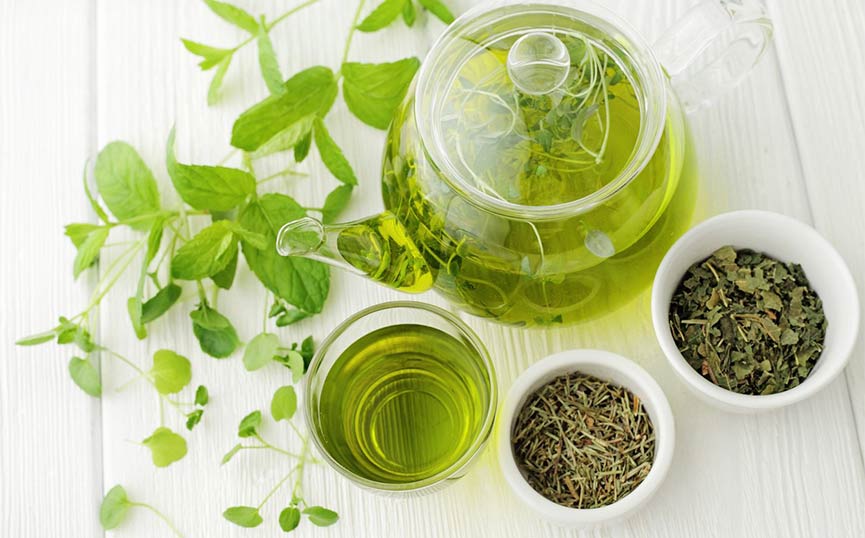Feeling tired all the time? Doesn't getting enough sleep or rest help? Can't afford to rest more and need to stay on top? Do you do demanding mental and/or physical work? Is the success of a whole team/family depending on your performance?

If any of these apply to you, you could use a natural spin! We also offer a wide range of energising, alertness-boosting herbs. We also offer pre-workout and pre-race energizers! But don't forget, most importantly, we're here to help you overcome nutritional deficiencies.1
The most basic antidotes to fatigue
There are essential nutrients that we can only and exclusively get from external sources. In other words, they are not produced by our bodies. The slightest deficiency of these nutrients will cause increased fatigue and lethargy.1
We are surprised to learn how many people today are at risk of nutrient deficiencies.2 For example, in the US, 40% of the population2 consumes less than the recommended intake of calcium. Also in the US, half of the population consumes less than half of the vitamin A intake.3 Of course, the research was done in America, but think about it, we Hungarians, who constantly eat bread, stewed meat and sausages, do we have such a different nutrient intake? Surely the proportions would be similar in Hungary - if similar studies had been done.
Vitamin vitality. In other words, nutrients essential for life. Although in today's world, vitamins are the hardest to go without, because many foods are fortified with vitamins. But it can still happen. Just think of the previous example of vitamin A. After all, most people eat a particularly monotonous diet. A comprehensive (complex) multivitamin supplement is therefore essential.
As long as strenuous tasks do not require extra vitamin intake.4-10 Until then, minerals (also known as electrolytes) are in high demand. This is because nerve conduction and muscle contraction also require a lot of minerals.11 Like vitamins, minerals are essential - they cannot be produced by the body. Another similarity is that they play a key role in millions of different processes. So in addition to a multivitamin that includes minerals, I recommend a little extra electrolyte intake. Especially for those who do hard physical work or do sedentary, intense exercise.
There is another group of amino acids that is often forgotten: amino acids, which are the building blocks of proteins. 9 amino acids are considered essential and must come from an external source for our body to function properly. This certainly gives us the right amount of essential amino acids (EAA). Most people find it quite difficult to get the right amount of protein. In such cases, the use of a high-protein meal replacement or supplement is highly recommended. We also offer drink powders containing only EAAs, available in refreshing fruity flavours. In summer, they can be the perfect choice to supplement your protein (and amino acid) needs!
There is one more nutrient that is not officially essential, but a growing number of sources are finding it crucial to the health of our bodies. It is fish oil, which is high in Omega 3 fatty acids.14-19 How can fish oil help with fatigue? Because it can significantly reduce inflammation. Inflammation increases the feeling of fatigue by overloading the immune system, which takes resources away from our body. Take 2-5 capsules of Omega 3, or fish oil, a day.15,18
The big guns
If you've stocked up on essential nutrients. That is, we have a good multivitamin, take 2-5 capsules of fish oil a day, have adequate protein intake and use electrolytes during/after hard sports/work. Then come those herbs that you will feel the effects of right away.

A buzzing antioxidant bomb. It's not only healthy, but also provides balanced energy.20-22 It detoxifies and reduces inflammation due to the antioxidants it contains. This can help improve the quality of our rest - speeding up the regeneration process. And the caffeine in it is slowly absorbed, so it keeps you energised. A super sun starter! Because of its caffeine content, we recommend the decaffeinated green tea extract for people with high blood pressure.
According to Indians, eating the aswhagandha plant gives you the power of a horse. Nowadays, this has been confirmed by studies. It has been found to actually stimulate brain function, memory concentration and physical performance. 23-27
The herb of the Vikings. Already used in the Middle Ages, this natural tonic was used by the Vikings. As an adaptogenic herb, it balances levels of stress hormones, allowing your body to respond to hormone changes according to the situation. Say goodbye to the panic of complex tasks and hello to unrivalled memory and concentration!28-32
A necessary component of the tiny engine of our cells. It keeps you fresh and energized (without raising blood pressure!). Coenzyme Q-10 is almost a vitamin above a certain age.33-35
Instead of energy drinks
Are you drinking more and more coffee or energy drinks? Feeling more and more inefficient? It's all because you're immune to coffee. You've developed a caffeine tolerance.36 Try our extended-release caffeine tablets in the morning instead of coffee. It won't pop the sleep right out of your eyes, but you're guaranteed not to need your coffee intake as much. Because it gives you a balanced supply of energy.
We also offer caffeinated and decaffeinated energisers, which, when consumed before a workout, can result in a significant performance boost. Why switch to this energy drink?
Because energy drinks rely mostly on caffeine for energy. However, boosters created specifically for physical performance enhancement. They contain blood-flow enhancers, which (without raising blood pressure) release more nutrients into the muscles,37,38 creatine (which boosts performance during short bursts of exertion39,40) and other specifically important amino acids such as L-taurine, L-leucine, L-alanine and carnosine.41-43 The good news is that people with high blood pressure can consume all of these nutrients because none of them raise blood pressure - yes, not even taurine!
We also offer caffeine-enriched pre-workout drink powders that will make you feel like you're changing the world almost as soon as you take the last sip.
These are our Top 7 products for unstoppability:
- OMEGA-3, MOLECULARLY DISTILLED (200 SOFTGELS)
- Q-SORB CO Q-10 200MG (30 SOFTGELS)
- EAA (195 G, FRUIT PUNCH)
- EGCG GREEN TEA EXTRACT 400 MG (180 CAPSULES)
- 40,000 VOLTS ELECTROLYTE CONCENTRATE (237 ML)
- NAPALM PRECONTEST (224 G, ORANGE)
Used sources
1. Tardy AL, Pouteau E, Marquez D, Yilmaz C, Scholey A. Vitamins and Minerals for Energy, Fatigue and Cognition: A Narrative Review of the Biochemical and Clinical Evidence. Nutrients. 2020;12(1):228. Published 2020 Jan 16. doi:10.3390/nu12010228
2. US Department of Agriculture, US Department of Health & Human Services. Scientific report of the 2015 Dietary Guidelines Advisory Committee: Advisory report to the Secretary of Health and Human Services and the Secretary of Agriculture; 2015. Available at: https://health.gov/dietaryguidelines/2015-scientific-report/. Accessed 4/23/18.
3. Fulgoni VL, 3rd, Keast DR, Bailey RL, Dwyer J. Foods, fortificants, and supplements: Where do Americans get their nutrients? J Nutr. 2011;141(10):1847-1854.
4. Braakhuis AJ. Effect of vitamin C supplements on physical performance. Curr Sports Med Rep. 2012 Jul-Aug;11(4):180-4.
5. Gerster H. The role of vitamin C in athletic performance. J Am Coll Nutr. 1989 Dec;8(6):636-43.
6. Belko AZ, Obarzanek E, Kalkwarf HJ, et al. Effects of exercise on riboflavin requirements of young women. Am J Clin Nutr 1983; 37:509–17.
7. Winters LRT, Yoon Y, Kalkwarf HJ, et al. Riboflavin requirements and exercise adaptation in older women. Am J Clin Nutr 1992; 56:526–32
8. Van der Beek EJ, van Dokkum W, Schrijver J, et al. Thiamin,riboflavin, and vitamins B6 and C: impact of combined restricted intake on functional performance in man. Am J Clin Nutr 1988;48:1451–62.
9. Van der Beek EJ, van Dokkum W,Wedel M, Schrijver J, van den Berg H. Thiamin, riboflavin and vitamin B6:impact of restricted intake on physical performance in man. J Am Coll Nutr 1994;13:629–40.
10. Institute of Medicine (US) Committee on Military Nutrition Research; Marriott BM, editor. Nutritional Needs in Hot Environments: Applications for Military Personnel in Field Operations. Washington (DC): National Academies Press (US); 1993. 8, The Effect of Exercise and Heat on Vitamin Requirements. Available from: https://www.ncbi.nlm.nih.gov/books/NBK236216/
11. Institute of Medicine (US) Committee on Military Nutrition Research; Marriott BM, editor. Nutritional Needs in Hot Environments: Applications for Military Personnel in Field Operations. Washington (DC): National Academies Press (US); 1993. 8, The Effect of Exercise and Heat on Vitamin Requirements. Available from: https://www.ncbi.nlm.nih.gov/books/NBK236216/
12. Richter M, Baerlocher K, Bauer JM, et al. Revised Reference Values for the Intake of Protein. Ann Nutr Metab. 2019;74(3):242-250. doi:10.1159/000499374
13. Carbone JW, Pasiakos SM. Dietary Protein and Muscle Mass: Translating Science to Application and Health Benefit. Nutrients. 2019;11(5):1136. Published 2019 May 22. doi:10.3390/nu11051136
14. Simopoulos AP, DiNicolantonio JJ. The importance of a balanced ω-6 to ω-3 ratio in the prevention and management of obesity. Open Heart. 2016;3(2):e000385. Published 2016 Sep 20. doi:10.1136/openhrt-2015-000385
15. Maes M, Mihaylova I, Leunis JC. In chronic fatigue syndrome, the decreased levels of omega-3 poly-unsaturated fatty acids are related to lowered serum zinc and defects in T cell activation. Neuro Endocrinol Lett. 2005 Dec;26(6):745-51. PMID: 16380690.
16. Calder PC. Omega-3 fatty acids and inflammatory processes: from molecules to man. Biochem Soc Trans. 2017 Oct 15;45(5):1105-1115.
17. Calder PC. Omega-3 fatty acids and inflammatory processes. Nutrients. 2010;2(3):355-374. doi:10.3390/nu2030355
18. Gammone MA, Riccioni G, Parrinello G, D'Orazio N. Omega-3 Polyunsaturated Fatty Acids: Benefits and Endpoints in Sport. Nutrients. 2018;11(1):46. Published 2018 Dec 27. doi:10.3390/nu11010046
19. Schwalfenberg G. Omega-3 fatty acids: their beneficial role in cardiovascular health [published correction appears in Can Fam Physician. 2006 Aug;52:952]. Can Fam Physician. 2006;52(6):734-740.
20. Pervin M, Unno K, Takagaki A, Isemura M, Nakamura Y. Function of Green Tea Catechins in the Brain: Epigallocatechin Gallate and its Metabolites. Int J Mol Sci. 2019;20(15):3630. Published 2019 Jul 25.
21. Mancini E, Beglinger C, Drewe J, Zanchi D, Lang UE, Borgwardt S. Green tea effects on cognition, mood and human brain function: A systematic review. Phytomedicine. 2017 Oct 15;34:26-37.
22. Dietz C, Dekker M. Effect of Green Tea Phytochemicals on Mood and Cognition. Curr Pharm Des. 2017;23(19):2876-2905.
23. Efficacy and safety of Ashwagandha (Withania somnifera (L.) Dunal) root extract in improving memory and cognitive functions. Choudhary D, Bhattacharyya S, Bose S. J Dietary Supplements. 2017;14:599–612.
24. Kritikar KR, Basu BD. Withania somnifera, Indian medicinal plants. 2nd Edition. IIIrd. Lalit Mohan Basu, Allahabad; 1935. pp. 1774–1776.
25. Singh RS. Ashwagandha, Vanaushadhi Nidharsika (Ayurvedic Pharmacopia) UP Sansthan: 1983. pp. 30–31
26. Singh N. Herbs - The Life of Man, Need Pharmaco-clinical Studies for their Scientific Validation - Relevance of Modern Methods of Pharmacological Studies to Traditional Medicine. Lucknow: Department of Pharmacology & Therapeutics, C.S.M. Medical University, Scientific Convention Centre; 2008. pp. 37–43
27. Bonilla DA, Moreno Y, Gho C, Petro JL, Odriozola-Martínez A, Kreider RB. Effects of Ashwagandha (Withania somnifera) on Physical Performance: Systematic Review and Bayesian Meta-Analysis. J Funct Morphol Kinesiol. 2021;6(1):20. Published 2021 Feb 11.
28. Li Y, Pham V, Bui M, et al. Rhodiola rosea L.: an herb with anti-stress, anti-aging, and immunostimulating properties for cancer chemoprevention. Curr Pharmacol Rep. 2017;3(6):384-395.
29. Si PP, Zhen JL, Cai YL, Wang WJ, Wang WP. Salidroside protects against kainic acid-induced status epilepticus via suppressing oxidative stress. Neurosci Lett. 2016;618:19–24.
30. Zhang J, Zhen YF, Pu-Bu-Ci-Ren, Song LG, Kong WN, Shao TM, Li X, Chai XQ. Salidroside attenuates beta amyloid-induced cognitive deficits via modulating oxidative stress and inflammatory mediators in rat hippocampus. Behav Brain Res. 2013;244:70–81.
31. Bystritsky A, Kerwin L, Feusner JD. A pilot study of Rhodiola rosea (Rhodax) for generalized anxiety disorder (GAD). J Altern Complement Med. 2008 Mar;14(2):175-80.
32. Jówko E, Sadowski J, Długołęcka B, Gierczuk D, Opaszowski B, Cieśliński I. Effects of Rhodiola rosea supplementation on mental performance, physical capacity, and oxidative stress biomarkers in healthy men. J Sport Health Sci. 2018;7(4):473-480. doi:10.1016/j.jshs.2016.05.005
33. Cooke, Matthew et al. “Effects of acute and 14-day coenzyme Q10 supplementation on exercise performance in both trained and untrained individuals.” Journal of the International Society of Sports Nutrition vol. 5 8. 4 Mar. 2008, doi:10.1186/1550-2783-5-8
34. Gökbel H, Gül I, Belviranl M, Okudan N. The effects of coenzyme Q10 supplementation on performance during repeated bouts of supramaximal exercise in sedentary men. J Strength Cond Res. 2010 Jan;24(1):97-102. doi: 10.1519/JSC.0b013e3181a61a50. PMID: 19644406.
35. Ylikoski T, Piirainen J, Hanninen O, Penttinen J. The effect of coenzyme Q10 on the exercise performance of cross-country skiers. Mol Aspects Med. 1997;18 Suppl:S283-90. doi: 10.1016/s0098-2997(97)00038-1. PMID: 9266538.
36. Lara B, Ruiz-Moreno C, Salinero JJ, Del Coso J. Time course of tolerance to the performance benefits of caffeine. PLoS One. 2019;14(1):e0210275. Published 2019 Jan 23. doi:10.1371/journal.pone.0210275
37. Gough LA, Sparks SA, McNaughton LR, Higgins MF, Newbury JW, Trexler E, Faghy MA, Bridge CA. A critical review of citrulline malate supplementation and exercise performance. Eur J Appl Physiol. 2021 Dec;121(12):3283-3295.
38. Álvares TS, Meirelles CM, Bhambhani YN, Paschoalin VM, Gomes PS. L-Arginine as a potential ergogenic aid in healthy subjects. Sports Med. 2011 Mar 1;41(3):233-48.
39. Mujika I, Padilla S. Creatine supplementation as an ergogenic aid for sports performance in highly trained athletes: a critical review. Int J Sports Med. 1997 Oct;18(7):491-6.
40. Hespel P, Derave W. Ergogenic effects of creatine in sports and rehabilitation. Subcell Biochem. 2007;46:245-59. PMID: 18652080.
41. De Carvalho FG, Galan BSM, Santos PC, Pritchett K, Pfrimer K, Ferriolli E, Papoti M, Marchini JS, de Freitas EC. Taurine: A Potential Ergogenic Aid for Preventing Muscle Damage and Protein Catabolism and Decreasing Oxidative Stress Produced by Endurance Exercise. Front Physiol. 2017 Sep 20;8:710.
42. Crowe MJ, Weatherson JN, Bowden BF. Effects of dietary leucine supplementation on exercise performance. Eur J Appl Physiol. 2006 Aug;97(6):664-72.
43. Caruso J, Charles J, Unruh K, Giebel R, Learmonth L, Potter W. Ergogenic effects of β-alanine and carnosine: proposed future research to quantify their efficacy. Nutrients. 2012 Jul;4(7):585-601.



